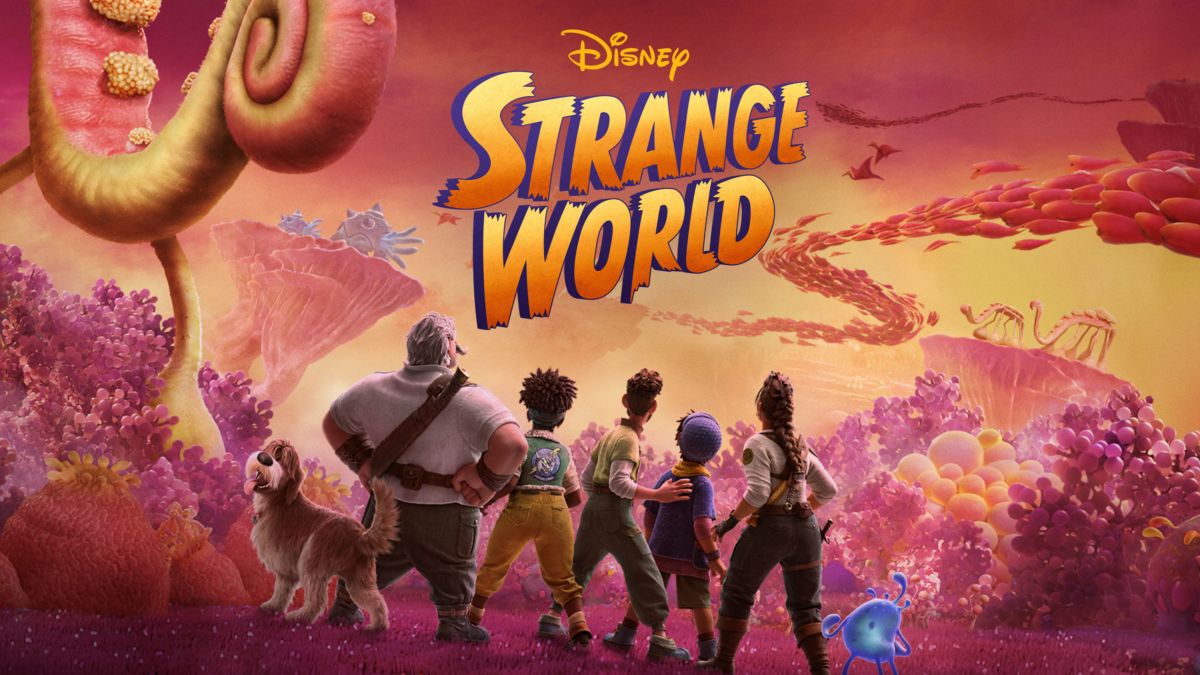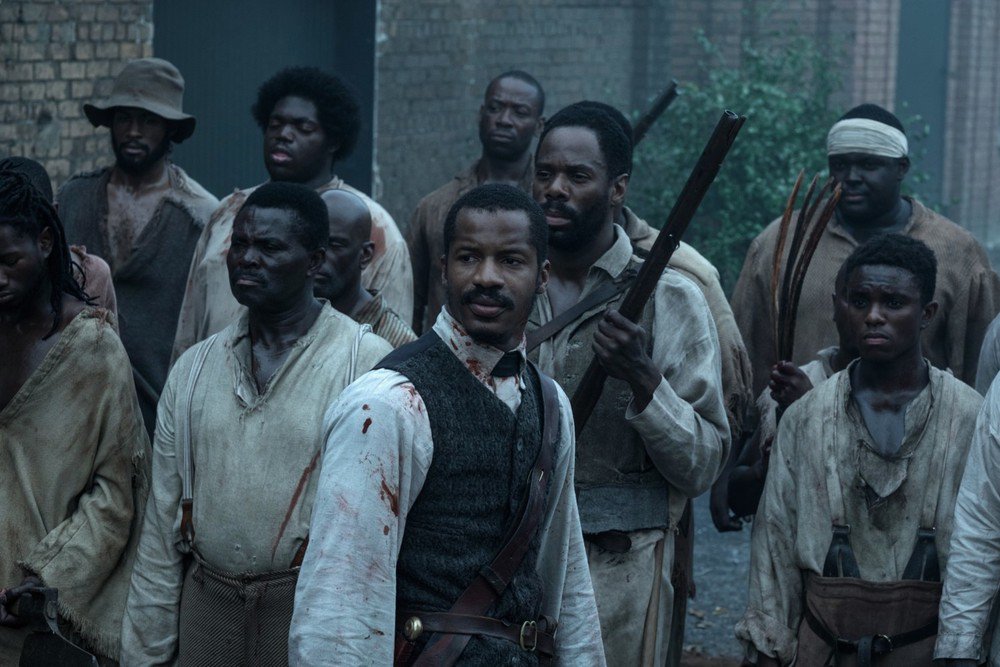Strange World
Posted on November 21, 2022 at 12:00 pm
A-| Lowest Recommended Age: | Kindergarten - 3rd Grade |
| MPAA Rating: | Rated PG for action/perio and thematic elements |
| Profanity: | None |
| Alcohol/ Drugs: | None |
| Violence/ Scariness: | Fantasy peril |
| Diversity Issues: | Diverse characters |
| Date Released to Theaters: | November 22, 2022 |

It begin with an introduction to the Clades, beautifully rendered in entrancing vintage comic-book visuals. Jaeger Clade (Dennis Quaid) is a burly adventurer with an impressive mustache, exploring anywhere no one has ever been, not really noticing that his young son, aspirationaly named Searcher (Jake Gyllenhaal), would much rather stop and look at interesting plants than grab a machete or ice-ax to make it over the next obstacle. “We’re explorers, not gardeners,” Jaeger says.
When Searcher is 15, Jaeger leads an expedition with an urgent purpose. The community of Avalonia is no longer sustainable. They are hoping that the unexplored area on the other side of the mountains will give them a place to relocate. When Searcher notices a glowing plant that could be a power source to keep Avalonia vibrant, he tries to make Jaeger halt the expedition to investigate. Jaeger is impatient. “Don’t be distracted by sparkly plants.” He insists on continuing, while the rest of the group decides to bring the plant back home. Jaeger is never seen again, presumed lost forever.
25 years later Avalonia has become a thriving community, with the plant, called pando, its all-purpose energy source. Searcher is happily settled as a pando farmer with his crop-duster wife Meridian (Gabrielle Union). Their teenage son Ethan (stand-up comic Jaboukie Young-White) is grossed out when his parents smooch, loves the imaginative table-top card game Primal Outpost, and is tongue-tied around his crush, a boy named Diazo. They also have an endearing three-legged shaggy dog named Legend.
One day, the pando in Meridian’s plane mysteriously stops working. And then a spaceship arrives with Avalonia President Callisto (Lucy Liu), who was with Searcher on Jaeger’s last expedition. She tells Searcher that pando is not individual, distinct sprouts but one connected growth. If one part of it is dying, soon all of it will be and the source of Avalonia’s power will be gone. Callisto needs Searcher to do exactly what he said he never wanted to do again — go on an expedition. He reluctantly agrees, insisting that Meridian and Ethan stay home on the farm.
Soon we are in the very strange world they literally fall into. This is where the Disney artists had the chance to dream up wildly fantastical landscapes and creatures that are enthralling and delightful. As the group tries to find out what is killing the pando there are many surprises I will not spoil except to say that the movie is exceptionally insightful in weaving together themes of interconnectedness and individuality. It even ties in Ethan’s favorite Primal Outpost, a game I fully expect Disney will make available for future tabletop tournaments and just for collectors as the cards are extraordinarily beautiful. Like the original “Frozen” and its sequel (producer Jennifer Lee is “Frozen’s” co-director), it gently challenges some conventional fantasy storylines.
“Strange World” is Disney at its best, filled with excitement, fabulously imaginative visuals, and a deep understanding of what makes stories connect to us and connect us to each other. The surroundings may be strange, but the themes are universal, lovingly illuminated.
Parents should know that this movie has fantasy peril and violence including a flame-thrower and a knife. There are themes of environmental destruction. The movie has exceptionally diverse characters, all very well designed without stereotyping and all supportive of each other.
Family discussion: How are you different from your parents? How are you alike?
If you like this, try: “Encanto” and “Big Hero Six”







